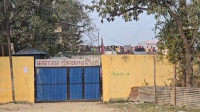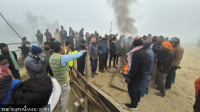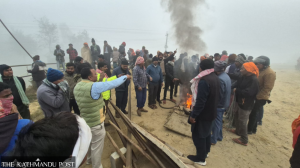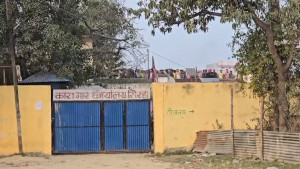Madhesh Province
Water crisis makes life difficult for Musahars in Saptari
As many as 90 impoverished Dalit families rely on a single tube well in the settlement.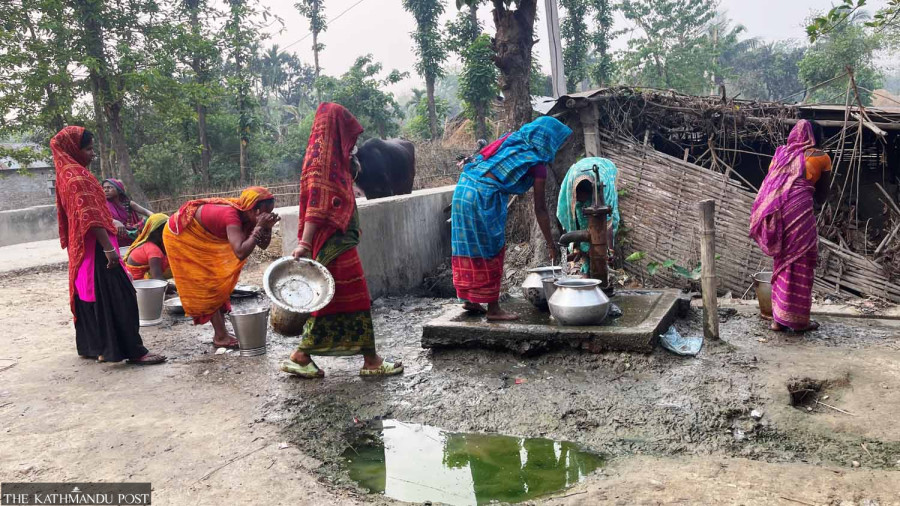
Bidyanand Ram
A Musahar settlement with 90 families in ward 5 of Chhinnamasta Rural Municipality, Saptari, has an acute shortage of drinking water. From drinking water to bathing and washing utensils, the entire community depends on a single tube well.
The locals of the impoverished Dalit community are hardest hit by the water crisis mostly in the dry season. “Every morning, we have to stand in line just to wash our faces and fill water,” said Somindra Devi Sada, 38. “We have been living with the crisis for years. Who cares about the problems of people like us? The entire Dalit community in this settlement has no option but to rely on this one tube well.”
While taking turns to fill water and wash dishes is manageable, bathing remains a major challenge. “Other tasks are somehow managed, but bathing is extremely difficult,” said Somindra. “Even this tube well was installed only after repeated requests to the ward chairman.” She expected help from this scribe to take initiatives for installing another tube well in the settlement.
According to the locals, the existing tube well was installed by the ward office two years ago.
“Earlier, the settlement had three tube wells, but the water was so rich in iron that it would turn yellow,” said 40-year-old Neman Sada. “This new tube well doesn’t have iron contamination, so now everyone depends on it, and the previous three tube wells have become unusable.”
The long queues in the morning make it almost impossible for many to bathe. “If I wait for my turn to bathe, it will be 10 am, and by then, it's too late to find work,” said Neman, a daily wage earner. “I don’t even remember the last time I took a proper bath.”
With a population of over 400 people of 90 families, the lack of adequate water sources has severely impacted daily life in the settlement. Personal hygiene and sanitation are also affected due to water shortage.
The children in this settlement attend Dalit National Basic School, which offers classes from early childhood education to grade four. The school has 122 students, 54 boys and 68 girls. This educational institution also lacks basic facilities like a tube well and toilets.
“Earlier, we conducted classes in an old building with just two rooms. Last year, the provincial government constructed a new two-room building and we shifted our classes here,” said Indira Thakur, principal of the community school. “However, the budget ran out before the construction work was completed. There is no boundary wall.”
According to Thakur, they are coordinating with the local authorities to install a tube well and construct toilets. “For now, students have to walk to the old building for drinking water and to use the toilet,” she said. “Running classes in such conditions is challenging, but we are forced to manage with limited resources.”
The school, established in 2004 with community donations, currently has a principal, two early childhood educators, one teacher, and one office assistant.
Vidhyanand Chaudhary, chairman of Chhinnamasta Rural Municipality, assured that the water crisis in the settlement would soon be resolved. “I was not aware of the shortage of tube wells in the Dalit settlement,” he said. “We will install new tube wells soon.”




 22.11°C Kathmandu
22.11°C Kathmandu



